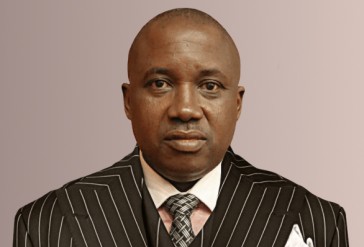Dr. Yakubu Agada on public-private partnerships
"I want to talk about the progress that Nigeria has made in the area of UHC. A mandatory law—what we call the National Health Insurance Authority Act—was signed into law on May 19th 2022 by the President of the Federal Republic of Nigeria, General Buhari. This is a very solid move in the direction of UHC for the entire country.
The former NHIS, which is a national health insurance scheme, had operated since 2005. And we have—if you understand the political structure of Nigeria—a federal system of government. But progress towards UHC in Nigeria has been slow, mainly due to the fact that there is decentralisation of health to the local government, the state level and the federal level: they all participate in the implementation of policies for health.
But with the passage of the new law, it has become mandatory for all Nigerians and legal residents in Nigeria to hold a health insurance policy. We have kickstarted the implementation of the act and we are working towards developing the secondary laws, which are the operational guidelines and all other policies. We are trying to ensure that everything is done and dusted at the right time.
We're also collaborating with the state structure set-up for health insurance—what we call the state social health insurance agencies in Nigeria. Almost all the states in Nigeria have already set up state social health insurance. That makes 36 plus one for the Federal Capital Territory health insurance agencies in Nigeria that are operating as we speak.
We are providing coordination and regulation for the health insurance ecosystem. Nigeria is a resource-poor country and the government definitely cannot take on the health budget entirely. That's where health insurance becomes very important as a means of healthcare financing. So we are developing that and ensuring that we are talking with the state and stage agents.

We are also talking to the so-called health maintenance organisations in Nigeria, who will be playing a very big role in providing technical support to the states and other structures, including acting as the third-party agents. We are also looking at the private health insurance space, which will be largely run by them.
In summary, we are building the structures and we believe that in the next few months we will be on the final march towards UHC.
It’s important to note that the desire to have this new health insurance act has been around as long as the old act. This is because whenever you have social health insurance that is non-mandatory, growth and coverage is slow. So the mandatory nature will make it possible for us to move quickly.
At the National Health Insurance Authority (NHIA), as part of FutureProofing Healthcare, we also have building capacities for data management—what we call the ENHIA, which we are hoping will be launched very soon, maybe during the health insurance summit in Nigeria on December 2nd/3rd. It will provide a whole data platform for the whole ecosystem for health insurance and the whole health system in Nigeria. So we'll be able to collect data better, be more efficient with data and take a more evidence-based approach.
We have also partnered in various ways with pharma companies in what we call the cost-sharing aspect of the NHIA Medicine Supply Initiative, where we're making it possible for our enrollees to be able to access innovative medicines—cancer medicines that before now were very expensive and usually inaccessible for the average Nigerian. We're making that happen."








